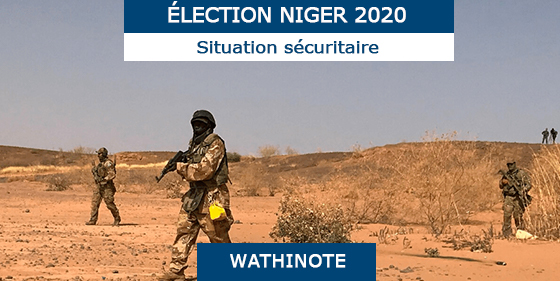

Author: Flora Stevens
Affiliated organization: Transparency International
Type of publication: Article
Date of publication: September 1st, 2020
Despite promising initiatives, tackling corruption in the nigerian security sector is still hindered by secrecy
Africa’s Sahel has been plagued with conflict and insecurity for more than a decade, and the recent ramping up of violence in the region is putting already weakened armed forces under increased strain. Defence sectors across the region suffer from low levels of civilian democratic control, weak institutional oversight and are struggling to fulfil their mission to improve security in the face of a sharp uptick in attacks from non-state armed groups.
Sandwiched between jihadi militants operating in Mali and Burkina Faso to the west, Boko Haram and affiliated groups continuing to launch devastating attacks in Nigeria to the south and war-torn Libya to the north, Niger has found itself drawn into these conflicts. The complex operational requirements of bringing security to the country, with the huge distances between major settlements, porous borders and hundreds of thousands of displaced people, would pose a challenge for any armed force. But Niger, like its neighbours in the region, is also grappling with the debilitating issue of corruption in its defence sector.
Despite recent promising initiatives at national level, efforts designed to fight corruption and improve defence governance have been hindered by a high level of secrecy. It was recently revealed that almost 40% of the $312 million Niger spent on defence procurement contracts over the last three years was lost through inflated costs or materiel that was not delivered, according to a government audit of military contracts. “More than 90% of the contracts awarded to the Ministry of Defence were negotiated by direct agreement, which favoured corruptive practices and overbilling”, said Hassane Amadou. “The competition is unfair, fictitious and sometimes non-existent.” These findings came as the crisis in the Sahel continues to worsen, with hundreds of Nigerien security forces killed in fighting. At the same time, troops on the front line have complained about a lack of kit or being provided with inadequate equipment. Hassane Amadou said the audit that uncovered the extent of the procurement mismanagement would now be subject to a lengthy legal challenge.
The complex operational requirements of bringing security to the country, with the huge distances between major settlements, porous borders and hundreds of thousands of displaced people, would pose a challenge for any armed force. But Niger, like its neighbours in the region, is also grappling with the debilitating issue of corruption in its defence sector
While the findings of the audit are shocking, they unfortunately do not come as a surprise. Transparency International – Defence and Security’s Government Defence Integrity Index (GDI) recently found that while government procurement regulations are clearly spelled out in law, there is a long-standing exemption for defence procurement. The 2016 Code of Public Procurements omits goods, equipment, supplies and services related to defence and security, which effectively leaves the door open to the sort of corrupt practices uncovered by the audit.
Despite the impressive reform efforts of the past few years, including the 2016-2021 Renaissance Programme, the 2016 Anti-Corruption Bill, and the 2018 National Strategy to Fight Corruption, Niger is struggling to ensure their effective implementation. The Nigerien government should primarily focus on closing this gap and on rectifying loopholes that allow for corruption in the defence procurement sector to thrive. This could include revising relevant legislation to ensure it effectively applies to all defence acquisitions, with no exceptions.
It is fundamental for the Nigerien military to fully grasp the intrinsic link between corruption and operational efficiency. An important focus area must be the deployment of trained professionals to monitor corruption risks in the field. There is unfortunately currently little evidence of this. There is no pre-deployment corruption-specific training for personnel and no guidelines on addressing corruption risks during operations.
To tackle the security threats Niger is facing, mitigating corruption risks in the defence sector is paramount and requires a robust, disciplined and integrated approach on the part of the Niger government. It needs to ensure civilian oversight is strengthened through well-functioning oversight mechanisms, while making sure corruption is approached in a systemic or comprehensive manner during troop deployment.
Les Wathinotes sont des extraits de publications choisies par WATHI et conformes aux documents originaux. Les rapports utilisés pour l’élaboration des Wathinotes sont sélectionnés par WATHI compte tenu de leur pertinence par rapport au contexte du pays. Toutes les Wathinotes renvoient aux publications originales et intégrales qui ne sont pas hébergées par le site de WATHI, et sont destinées à promouvoir la lecture de ces documents, fruit du travail de recherche d’universitaires et d’experts.
